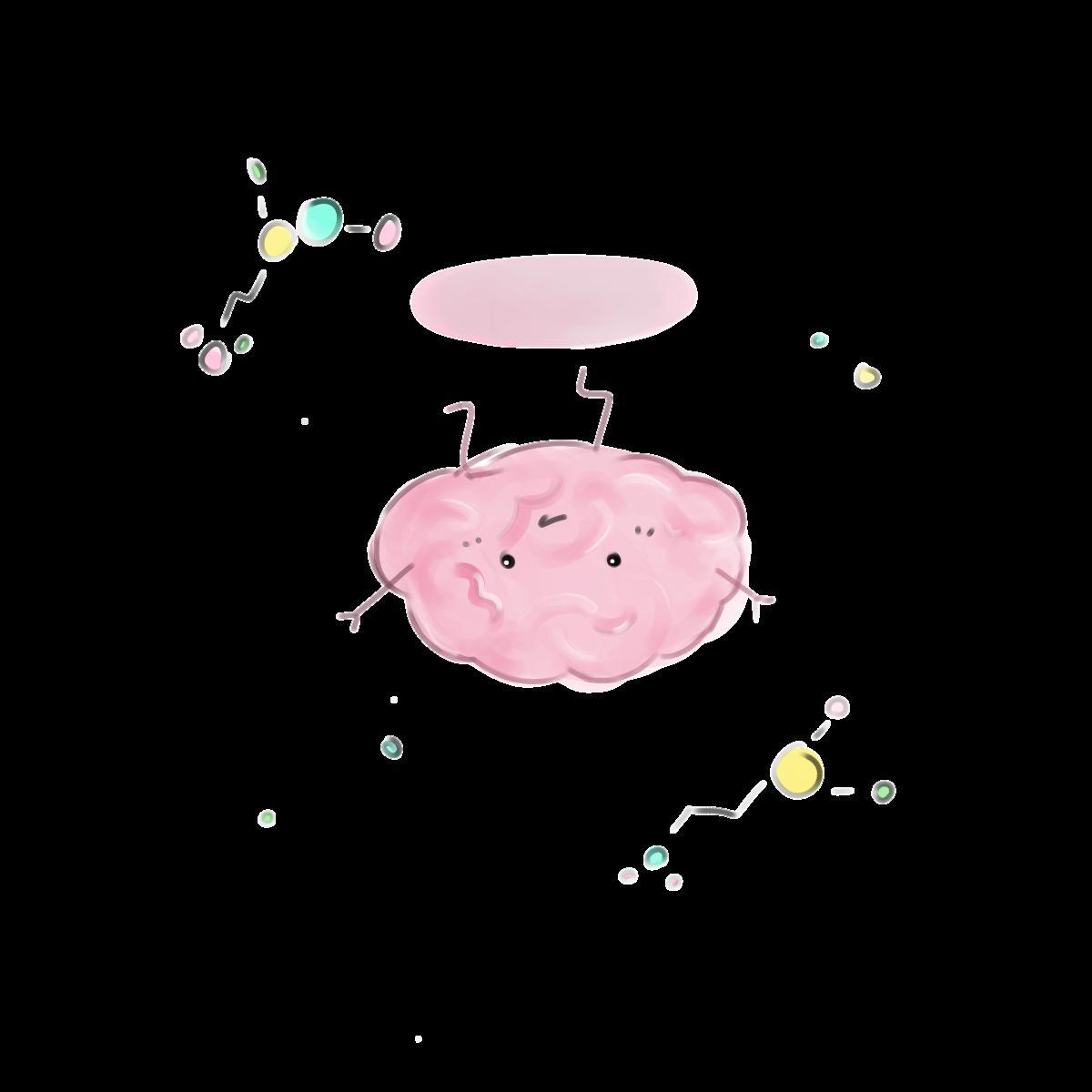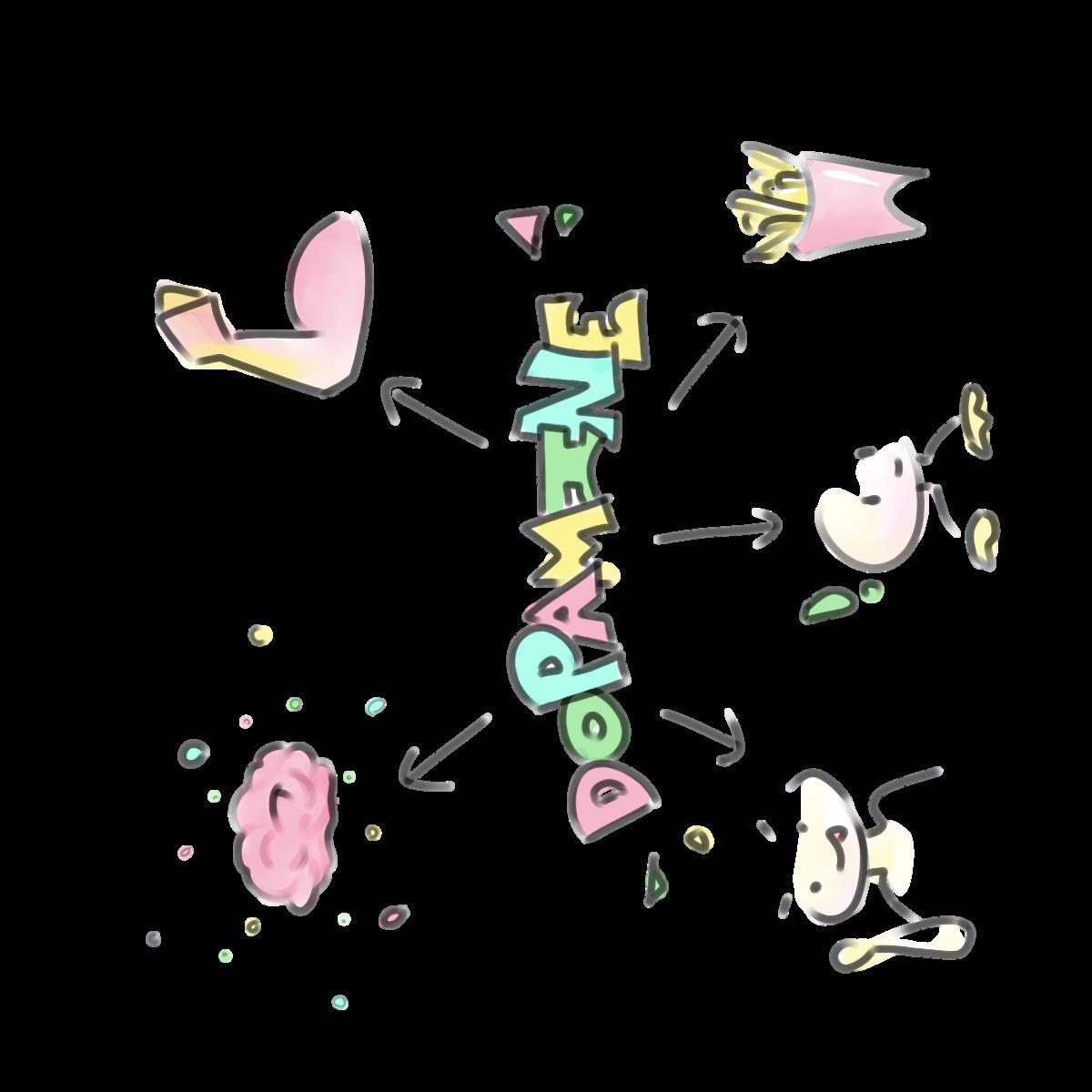
1 minute read
The Bodyworks and biology
from Winter 2023 Edition
by scienceholic
depression and anxiety manifest as decreased serotonin levels in the brain, SSRIs are highly effective in treating such ailments. Similarly, SNRIs, or serotonin and norepinephrine reuptake inhibitors, work the same way, also blocking the reuptake of norepinephrine another mood-regulating neurotransmitter, producing more effective antidepressants than SSRIs

Advertisement
In health class, you may have heard how dopamine, “the pleasure neurotransmitter,” is released as an effect of taking certain drugs, thus being directly involved in addiction. Generally, it is released in anticipation or as a reward for desirable behavior, whether that be food, drugs, or sex That is not the only function of dopamine, though Dopamine is integral to motivation, decision-making, attention, memory, learning, and muscle movement. High dopamine levels can cause increased competitiveness, aggression, and poor impulse control, symptoms commonly observed in disorders such as ADHD. On the other hand, low levels of dopamine are associated with deterioration of higher mental functions and muscle stiffness, such as what happens during Parkinson’s disease Someone with this condition suffers from degeneration of their dopamine-releasing neurons, decreasing their endogenous levels of dopamine.


Overall, neurotransmitters are essential to our daily functioning. Not only do they affect your mental and emotional state, but they also contribute to your physical well-being This overview barely scratches the surface of the immense amount of information pertaining to neurotransmitters Neuroscience is a complicated and constantly-developing field of study. There are still endless topics to discover.


